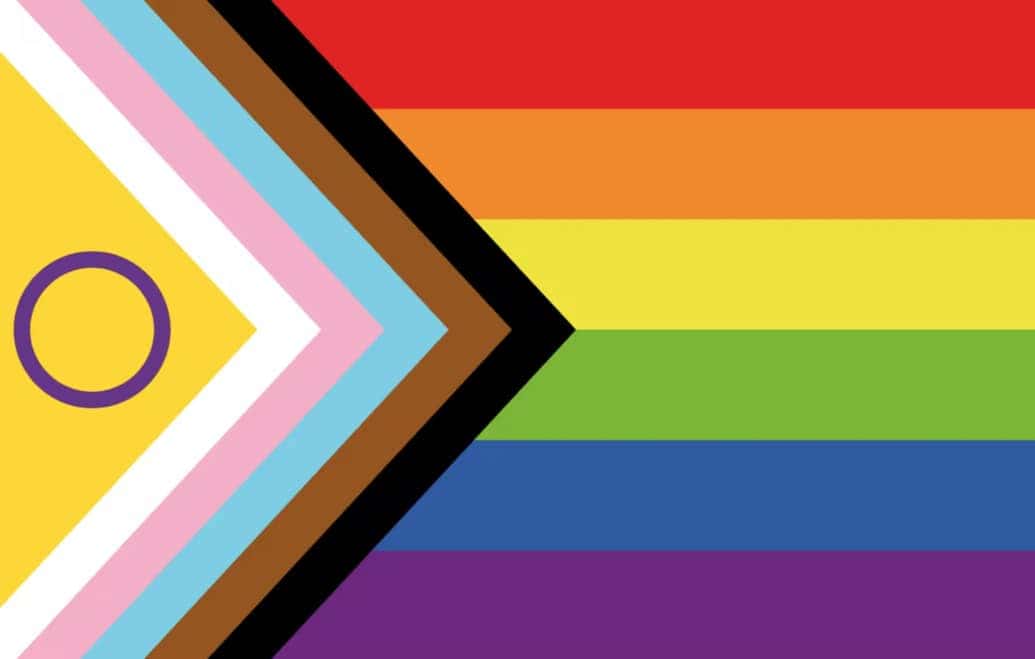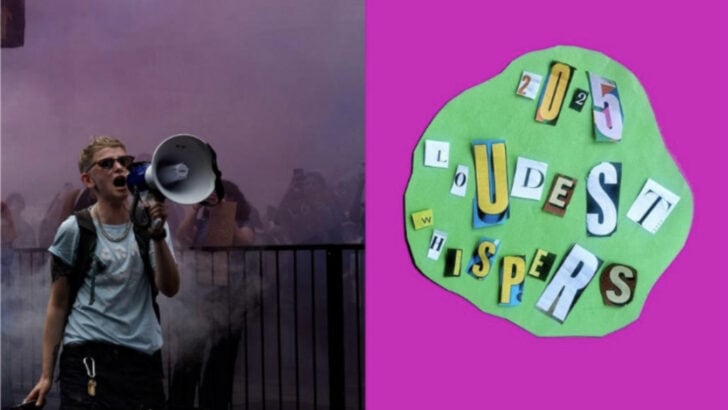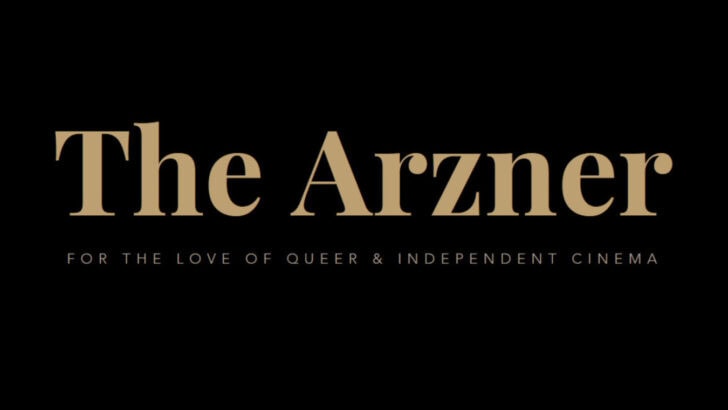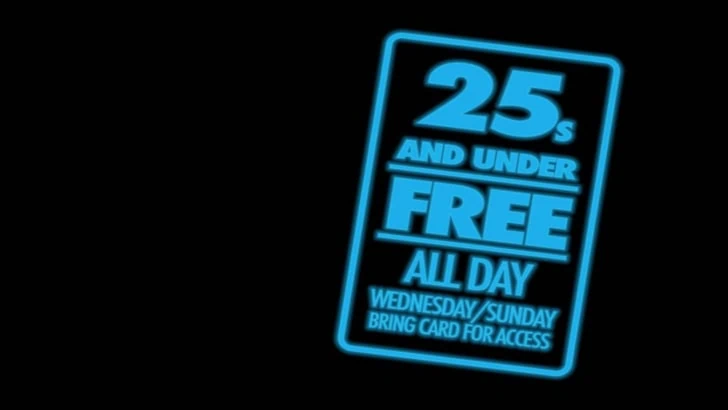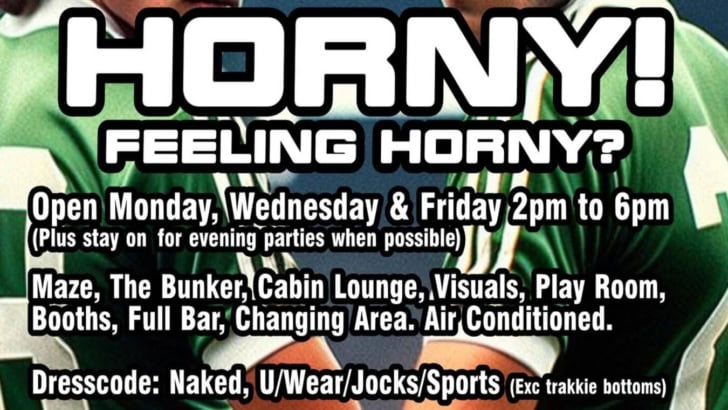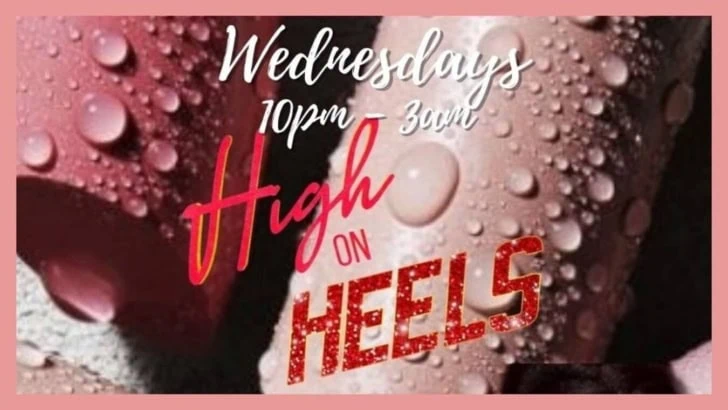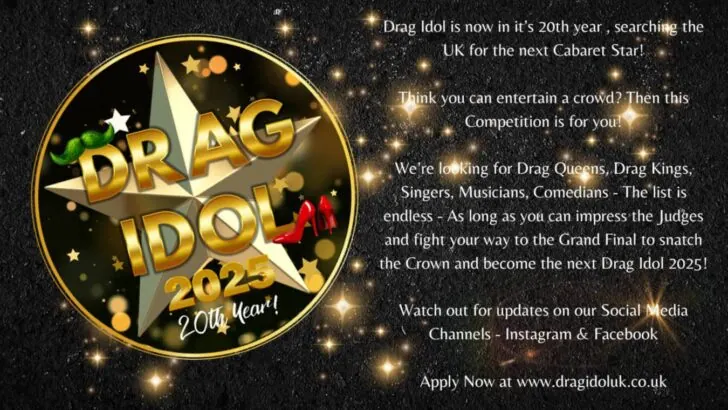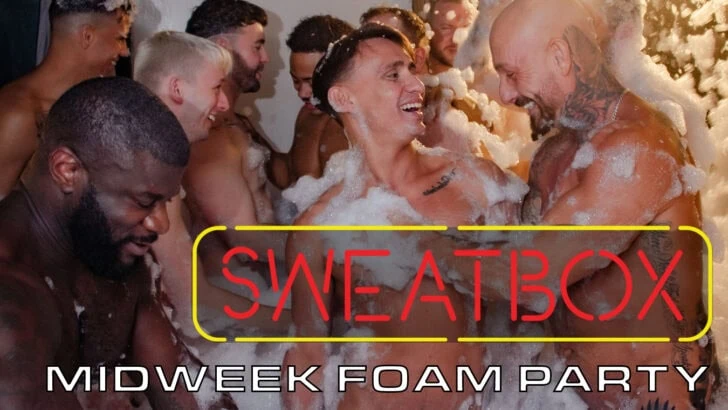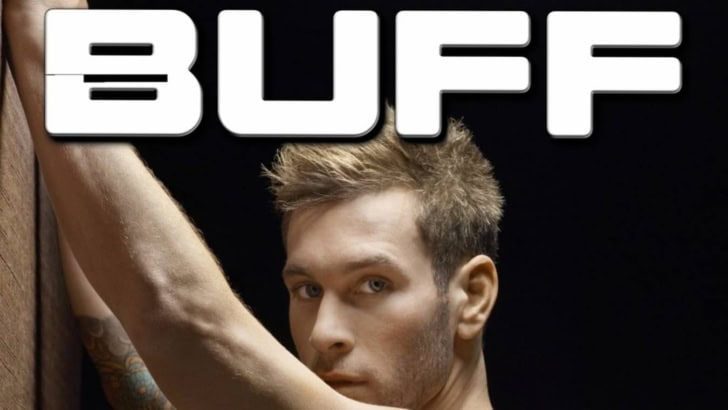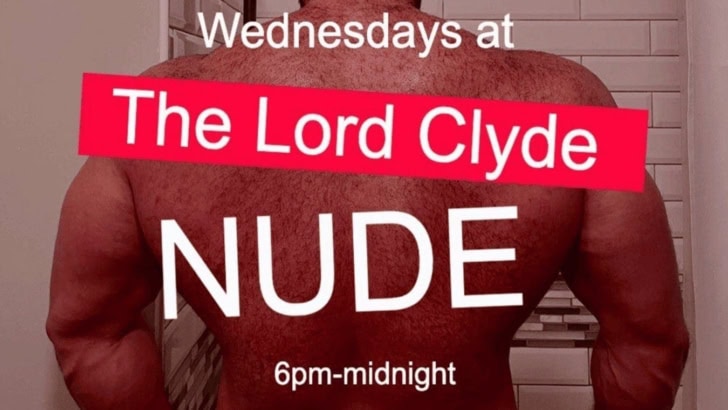Jose Vigers is a queer artist and tattooist living in London/Berlin, and a big fan of Cher.
By Patrick Cash
Tell us a bit about yourself.
I’m originally from Australia, I’ve been living in Europe for the last 7 years, between Berlin and London. I’m an artist primarily and in the last two years I’ve been tattooing.
What brought you to Europe from Australia?
I have family in the UK, I had a friend who moved to Berlin years ago and I moved with her, and she was very into the punk scene in Berlin and introduced me to a lot of things.
How did you find Berlin?
Berlin’s an interesting place, which is changing very fast. In the time I’ve been there it’s doubled in price.
Because it’s become a bit of a mecca…
Yeah, it’s a mecca for gay people, it’s a mecca for punks, it’s a mecca for young travellers, young, club people. Any alternative scenes find their temple in Berlin, basically.
I lived there myself for a month a few years ago, yeah.
Well you know, there’s so much to do there.
Yeah, I was there in January so there were abandoned Christmas trees over the streets, there was snow everywhere.
I always try to be in Berlin for New Year’s because they let off fireworks, like the whole sky is lit up, and the whole city vibrates.
Fantastic.
Yeah, it’s a lot less tame than here.
That was the thing, when you were wandering the streets there was no one around and then you’d go into a bar and it would be heaving and full of people. Whereabouts did you live in Berlin?
I’ve lived everywhere in Berlin. If it’s inside the ring I’ve lived there, because I lived there for so long and I never was very stable in my life so I was moving from place to place. I stayed in a lot of different house projects and squats in Berlin.
But now you’re based in London?
Between London and Berlin but more London as time goes on.
And how did you get into illustration?
I did a university degree in art, and the degree I did was very conceptual. And in opposition to that education, I did four years of a three year degree and then I failed my last week. I went to Berlin and just started exploring all the things I was interested in originally, like comic books, animation and slowly I’ve been doing that.
You failed your last week, that does mean the whole degree was invalidated?
Yes.
That’s very annoying, no?
It is and it isn’t. Degrees are pretty much useless anyway unless you’re going to be something specific like a doctor or a lawyer and you’re going to use the actual information.
It’s not going to help you in art.
I haven’t found it a disadvantage at all, and in some ways it’s an advantage because you know you’re outside of the system.
You’ve got more of an independence… And what drives you in creating your art?
I suppose my own experiences as a queer person, and feelings of otherness and being drawn to dangerous things and seeing beauty and ugliness. I think that’s very much part of a queer experience and feelings of inadequacy within the rest of the world.
How was it growing up gay/queer in Australia?
I have a very liberal family, they were very supportive, and I had no problems in that regard. However I think if you’re anywhere but the most tightly knit communities you’re going to experience feelings of isolation, because it is a macho, heteronormative world and if you’re feeling outside of that sphere of accessibility then you’re going to feel not necessarily there.
I completely understand, in Australia in particular they have a reputation for being quite macho, don’t they?
Yeah, but you know I travel quite a lot and there’s homophobia everywhere and Australia could be a lot worse, we have things like Sydney Mardi Gras, and I also think in your community your local gay bar becomes more important. Whereas say in a place like London, it’s not so much a community as it is a place to indulge.
And what was the bridge from illustration to tattooing?
Basically when I began living in Berlin, I was living in squats and house projects and things like that, house projects are like the legal squats –
Like the property guardian thing?
They have like a trust and meetings on Sundays, it’s very safe and nice and you feel very outside of the norm and a lot of the people in these places you would get drunk with a friend and it’d be like ‘let’s tattoo each other’ and you’d do like a handpicked tattoo with a needle, prison style. I went from that, from tattooing myself to tattooing my friends, to tattooing people for money. I bought a machine and I taught myself, I started working in a shop in Berlin for a woman named Ela and then I came to London to do a guest spot at Shangri-La and worked for Lesley Chan, which is also important, the fact that the only places I’ve worked in the tattooing industry have been run and operated by women. And I’ve slowly gone from a guest artist in London to a resident artist.
What is Shangri-la’s ethos, how do you feel you fit into that?
Lesley is a very open person, and very accepting and very flexible. For example if I have to tattoo someone who is body sensitive for whatever reason, they might be trans etc, then I can do it outside of opening hours so it’s more private, there’s not a whole bunch of people looking on. Shangri-La is a very relaxed and like everything you don’t expect a tattoo shop to be as a queer person, because I know from talking to a lot of people the big anxiety about going into a tattoo shop as a queer person is the idea that you’re going to have to take your clothes off in front of a straight men, and that’s not the case in Shangri-La. There’s also a lesbian working there and people come in and out constantly of all kinds of sexualities and genders.
What was it like, your very first experience of tattooing, were you nervous or were you just blind drunk?
It was on myself, and there’s a recklessness with it and a dangerous element that appealed to me – nervous isn’t the right word, excited would be a better word. And you know we tattoo ourselves every day with experiences we do and stuff like that, it’s just that this is kind of making the internal external. And it’s scary because it is permanent but you know that’s not a thing that worries me.
And what do your own tattoos say?
Most of my tattoos have been done by my friends, I’ve never paid for a tattoo. I’ve only ever bartered or have been gifted them. I like the Russian prison aesthetic that Shangri-La has popularised, but what I like about that particularly is the collage of experiences that you get with that kind of tattooing.
What’s the Russian prison aesthetics?
Basically like in Russian prisons they’d cover their bodies with small insignia to mark someone dying or your mother or whatever. And I really appreciate the collage aesthetic; like if I was to point to a tattoo I could remember the moment the person who gave it to me, and the person who gave it to me would mean something to me, it’s not just an image. It’s like a journal basically and some of the best times I have on my skin. And anyone can do this, I have terrible tattoos, it’s not about skill level, it’s about recklessness.
Have you heard about the queer sailor tattooist from the early twentieth century… No, I’ll find it out and send it.
The thing is to be a woman in the tattoo industry is difficult, to be a queer person is a mountain. For example, the London Tattoo Convention just has gone past and it’s mostly dominated by white straight men. And this is one of the most liberal in the whole world, and for this to be the most liberal is crazy, especially considering how many gay men, lesbians and trans people, as part of their identity as a queer person, tattoos are a part of that.
That actually leads me on to one of my further questions, do you think LGBT people are more drawn to tattoos and body art as a form of self-identification and is that self-identification against oppression?
I don’t know, I wouldn’t want to talk about whether it’s to do with oppression or not, because everyone’s individual experience is completely different and I think that’s what queer is about, it’s about being other gender norm. The trans people I’ve met in my life personally, it’s been very much about their transition – taking control of their body, making the internal external, having these signifiers that sort of say ‘this is who I am, now’ and gay men get tattooed, lesbians get tattooed. Tattoos are an intrinsically queer thing, it’s so sort of like funny to me that it’s such a hetero scene. Even in Berlin or London which are massive queer, gay, lesbian, trans places. I think there are two ways to take an alienation from the straight tattooing majority, you can be defensive and aggressive or you can be like ‘no fuck this, I’m going to create my own space and my own place where people can come and experience tattooing’.
And that’s what Shangri-La is, it’s got an open ethos. We’ve already spoken a bit about this, but how do you identify and describe yourself?
I’m a gay man but I’m definitely also queer and operate within the queer community.
How do you see the queer community in 2014, in London specifically?
In London? London is a funny one because in Berlin there’s a massive queer British population in Berlin, and I think a lot of people in the UK who are from the UK feel that the UK is very oppressive in terms of being themselves. For whatever reason, economic… You know it’s expensive to live in London and if you want to go socialise with your queer community, it costs money. It’s a very difficult thing to say, when I’m in Berlin everyone talks about ‘queer, queer, queer’ and in London everyone’s like ‘I’m a lesbian, I’m trans, I’m gay’, it’s less sort of an umbrella of otherness and more…
More divisive categories?
Yeah, which is interesting in itself. And I also find that British people in Britain are very sexually repressed, take them out of Britain and they go nuts. But when you’re in your homeland, it sort of makes the community a bit repressed. Do you know what I mean?
Yeah, definitely. It’s interesting. What are some of your happiest moments in your life and career to date?
I don’t know, for me happiness is sort of being able to keep on doing my art and not have to get a 9-5 and in a lot of ways tattooing was a fallback from a 9-5 and is a 9-5. I should explain: there are two kinds of tattoo shops, there are walk-in shops and there are custom shops. Shangri-La is both a walk-in and a custom shop, whereas Prick is just a walk-in. A walk-in is where you come in from the street, you say ‘I want this’ and a custom shop is more like you have a discussion from the artist and Shangri-La is one of the shops now that pioneered that kind of vibe. And so for me, it’s like a very good 9-5, to be able to go and talk to people and to be able to create something specific for them.
You get to know people and to explore their psychology I guess. What reasons do you find – everybody has different reasons I guess – but, do you find that overlapping reasons crop up for why people come to get tattoos?
Memorial is a big thing. I had a friend pass recently and I got a tattoo for him. Aesthetic is a big thing. You want to appear in a certain way and tattoos are a visual medium and it’s a very fast way of identifying yourself as something. There are so many reasons basically, if you can think of a reason, someone has got a tattoo for that reason. Some of the stories you hear are insane as well. I can’t think of any now but people are either super-personal with it or completely not giving a shit and they just want to cover their body, sometimes it’s very destructive you know. It’s not destructive because it’s a constructive kind of act, you’re creating something for someone and they’re part of the process, but it’s destructive in that it damages the body. The body’s not necessarily wanting images carved into its skin and it’s destructive in that it involves pain and it marks people.
Definitely. It’s really quite fascinating – how old are you, btw?
27.
27, cool. What do you still want to achieve?
I’d like to travel more, a good thing about tattooing is that you can travel with work and so a big thing is being in different cities and different shops and things like that. But as I said the tattoo world is a super-hetero, I don’t necessarily want to go work for a straight man, so finding appropriate shops that are queer friendly is a very important to me in particular. I’m going to Japan in February to do a pop-up shop so that should be interesting because I know Japan in particular has a very underground queer community and a very underground tattoo community so it’ll be interesting to see how that compares to Europe.
Are you involved in the Kaos parties at all?
Not particularly. In Berlin, I suppose the equivalent would be ‘Gaigan’ and I was very involved in that, but with my friend passing and getting a bit older I was trying to move away from partying in terms of socialising with my community and to try and find other ways in the daylight to do that, which is difficult, you know.
What ways do you find in London?
Cabaret. I have a lot of drag friends – basically if you want to find a queer event, go find a drag queen. In East London I have friends who do it, my best friend is Oozing Gloop. We went to America last year to see Cher and for me this was a massive thing, because I went through rehab and you have to give yourself away to a higher power basically and I’m not religious so I was like, what is the gay higher power? And it was Cher. Slowly she grew into a myth that was beyond what she is. We went to LA and he was my buddy to go with and then our friend Angel, her father hooked us up with really good tickets, we were four rows from the front with Kathy Griffin sat behind us and we went to New York and it was amazing.
Do you have a Cher tattoo?
Yep, and this is probably the only tattoo I’ve really thought about and planned.
Who did it for you?
Something I work with, Ryan Jessemen.
At Shangri-La?
And you know I haven’t been tattooed by many straight people and he was someone I felt comfortable being tattooed by, because he is very fluid. In terms of his sexuality and his being. This is something I like about Shangri-La, because the straight people there who identify as straight and live in the straight, hetero world are still very fluid with their ideas and their person. You can go into a lot of tattoo shops and it’s complete rigidity and this what I wanted to avoid and why a lot of queer people are afraid of going into tattoo shops.
And finally, where can we find you exhibiting your art?
I’m probably going to do an exhibition in Limewharf before I take it to Japan. For the last two years I’ve been concentrating on tattooing because it is such a craft and you really need to get your shit together, especially when you’re charging for it and you’re working in a professional environment. Before when I worked with my friends it was very relaxed and I haven’t done a traditional apprenticeship and so it’s different, and so for the last two years I stopped painitng and working on my personal work and was just creating and tattooing my people. I’d like to do both art and tattooing, it’s the same thing to me.
